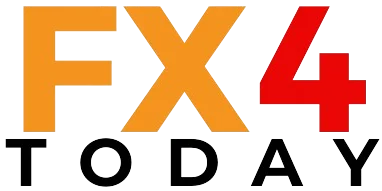Introduction
Artificial Intelligence (AI) is revolutionizing the forex trading landscape, providing traders with advanced tools and techniques to enhance decision-making, improve efficiency, and boost profitability. From predictive analytics to automated trading systems, AI is reshaping how forex markets operate. This article delves into the role of AI in forex trading, exploring its benefits, challenges, and prospects.

Table of Contents
1. Understanding Artificial Intelligence in Forex Trading
2. Benefits of AI in Forex Trading
3. AI Techniques and Tools in Forex
4. Challenges of Implementing AI in Forex Trading
5. Case Studies: AI in Action
6. Future Trends in AI and Forex Trading
7. Conclusion
Understanding Artificial Intelligence in Forex Trading
Definition and Importance
Artificial Intelligence refers to the simulation of human intelligence in machines programmed to think and learn like humans. In forex trading, AI involves using algorithms and machine learning models to analyze market data, predict trends, and execute trades. The importance of AI in forex lies in its ability to process vast amounts of data quickly and accurately, enabling traders to make informed decisions and gain a competitive edge.
Evolution of AI in Forex
The use of AI in forex trading has evolved significantly over the past decade. Initially, AI was limited to simple algorithmic trading systems. Today, it encompasses complex machine learning models, neural networks, and natural language processing, providing deeper insights and more sophisticated trading strategies.
Benefits of AI in Forex Trading
Enhanced Predictive Analytics
AI enhances predictive analytics by using historical data to forecast future market trends. Machine learning models can identify patterns and correlations in data that may not be apparent to human analysts, improving the accuracy of predictions and helping traders anticipate market movements.
Automated Trading Systems
AI-powered automated trading systems, also known as trading bots, execute trades based on pre-defined criteria without human intervention. These systems can operate 24/7, taking advantage of trading opportunities as they arise and reducing the emotional bias that can affect human traders.
Improved Risk Management
AI improves risk management by analyzing vast amounts of data to identify potential risks and recommend mitigation strategies. Machine learning models can assess market conditions in real time, providing traders with timely insights to manage their positions and minimize losses.

AI Techniques and Tools in Forex
Machine Learning
Machine learning involves training algorithms on historical data to make predictions or decisions without explicit programming. In forex trading, machine learning models can analyze price patterns, volume data, and other market indicators to forecast currency movements and optimize trading strategies.
Natural Language Processing
Natural Language Processing (NLP) enables AI systems to understand and interpret human language. In forex trading, NLP can be used to analyze news articles, social media posts, and other textual data to gauge market sentiment and predict how news events might impact currency prices.
Neural Networks
Neural networks are a subset of machine learning that mimic the human brain’s structure and function. They are particularly effective at recognizing patterns in complex data sets. In forex trading, neural networks can analyze historical price data and other variables to generate trading signals and improve decision-making.
Challenges of Implementing AI in Forex Trading
Data Quality and Availability
The effectiveness of AI in forex trading depends on the quality and availability of data. Inaccurate or incomplete data can lead to flawed predictions and suboptimal trading decisions. Ensuring access to high-quality, real-time data is crucial for successful AI implementation.
Technological Infrastructure
Implementing AI in forex trading requires advanced technological infrastructure, including powerful computers, high-speed internet connections, and sophisticated software. Smaller firms and individual traders may find it challenging to invest in the necessary technology.
Regulatory and Ethical Considerations
The use of AI in forex trading raises regulatory and ethical concerns. Regulators need to ensure that AI systems operate transparently and do not manipulate markets. Ethical considerations include ensuring that AI does not exacerbate market volatility or create unfair advantages for certain traders.
Case Studies: AI in Action
Predictive Models in Currency Forecasting
Several forex trading firms have successfully used AI predictive models to forecast currency prices. For example, machine learning algorithms trained on historical price data and economic indicators have been able to predict market trends with high accuracy, leading to profitable trades.
AI-Driven Trading Algorithms
AI-driven trading algorithms have been deployed by hedge funds and institutional traders to execute high-frequency trades. These algorithms analyze market conditions in real time and make rapid trading decisions, capitalizing on short-term price movements.
Sentiment Analysis and Market Prediction
AI systems using sentiment analysis tools have been able to predict market movements based on news and social media trends. By analyzing the sentiment behind news articles and social media posts, these systems can anticipate how market participants will react to new information and adjust trading strategies accordingly.
Future Trends in AI and Forex Trading
Integration with Blockchain Technology
The integration of AI with blockchain technology is expected to enhance transparency and security in forex trading. Blockchain can provide a tamper-proof record of transactions, while AI can analyze this data to identify trading opportunities and manage risks.
Advancements in AI Algorithms
Ongoing advancements in AI algorithms will continue to improve the accuracy and efficiency of forex trading systems. Innovations such as deep learning and reinforcement learning hold the potential to develop even more sophisticated trading models.
Increased Adoption of AI by Retail Traders
As AI technology becomes more accessible, retail traders are expected to increasingly adopt AI tools and systems. This democratization of AI will enable individual traders to compete with institutional players and benefit from advanced trading strategies.
Conclusion
Summary of Key Point
AI is transforming forex trading by enhancing predictive analytics, enabling automated trading, and improving risk management. Despite challenges such as data quality, technological infrastructure, and regulatory concerns, the benefits of AI in forex are substantial.
Final Thoughts on AI’s Role in Forex Trading
The future of forex trading lies in the continued integration of AI technologies. As AI algorithms advance and become more accessible, traders will be better equipped to navigate the complexities of the forex market. Embracing AI will be crucial for staying competitive and achieving long-term success in the dynamic world of forex trading.





